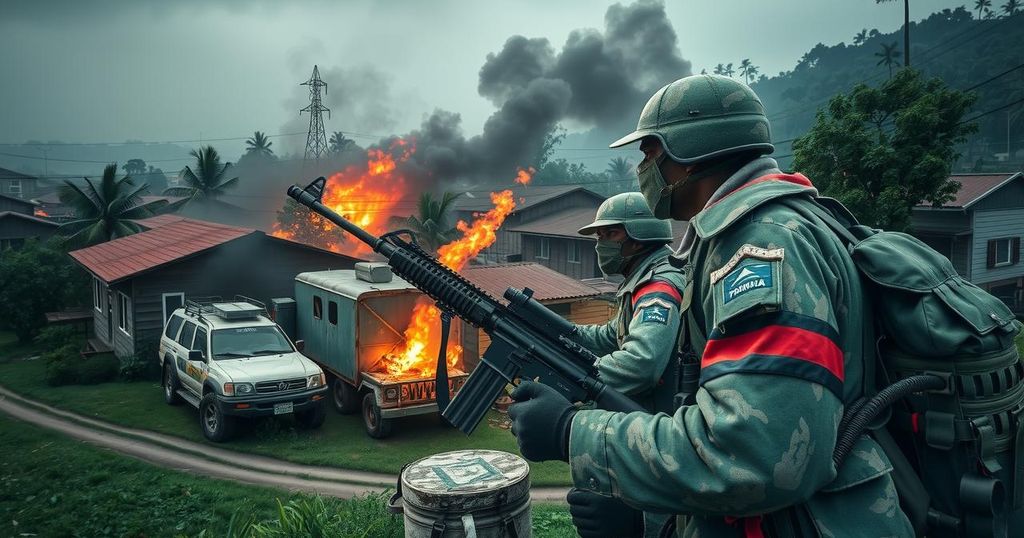Rebels from M23 have captured Katale and Masisi in eastern Congo, deepening security and humanitarian crises. Over 7 million people are displaced, and the Congolese government faces criticism for its response. The conflict is complicated by accusations against Rwanda of supporting the rebels. A ceasefire established in July has been violated, heightening international concerns.
Rebels from the M23 group have recently captured two significant towns in eastern Congo, as reported by local officials and residents. The towns of Katale and Masisi fell to the rebels in the last week, with Masisi located approximately 80 kilometers west of Goma, a crucial access point to the interior of the country. This escalation in violence exacerbates the already intense security and humanitarian crises in the region, where over seven million people have been displaced due to ongoing conflict.
M23 political spokesman Lawrence Kanyuka announced the takeover of Masisi on the social media platform X, asserting the group’s commitment to civilian protection. Meanwhile, Alexis Bahunga, the deputy for the Masisi territory, has corroborated claims that Masisi is indeed under M23 control, expressing concern over the dire humanitarian conditions facing the population affected by the violence. “The humanitarian situation is so catastrophic,” he stated in a recent interview.
Colonel Djike Kaiko, spokesperson for the Congolese army, mentioned that he was in the process of verifying the situation regarding the rebel advancements. The president of the civil society organization Forces Vives du Nord-Kivu, John Banyene, criticized the government for its inadequate response, expressing alarm at the loss of territorial control. “It is inconceivable that the government continues to act in this way at a time when we are losing space,” he said.
Residents have reported distressing scenes, with individuals fleeing conflict zones, including reports of casualties from rebel attacks. Moreover, the relationship between Rwanda and the M23 has been contentious, with Congo and the United Nations accusing Rwanda of providing support to the rebel group. Although Rwanda has denied these accusations, the country has acknowledged deploying troops in eastern Congo for its security needs.
Despite a ceasefire agreement signed in July, hostilities have resumed, prompting concerns from the United States regarding frequent violations by M23 forces. This situation underscores the volatility and complexities of the conflict in the mineral-rich eastern Congo, where armed groups compete for control, creating humanitarian crises of significant magnitude.
The conflict in eastern Congo is marked by the presence of over 100 armed groups, including the M23, which is engaged in a power struggle in a territory rich in minerals. This situation has resulted in one of the most severe humanitarian emergencies globally, with millions displaced from their homes. Historical tensions in the region, particularly between Congo and its neighbor Rwanda, have further complicated efforts to restore peace. The government has been criticized for its slow response to the escalating violence, leading to deepening fears among the civilian population.
In summary, the recent seizure of Katale and Masisi by M23 rebels highlights the deteriorating security conditions in eastern Congo. The humanitarian crisis has worsened, with increasing displacement and casualties. Criticism of the government’s response has intensified, and the involvement of neighboring Rwanda continues to be a contentious issue. Urgent international attention is required to address the growing instability and protect vulnerable civilians in this region.
Original Source: apnews.com






